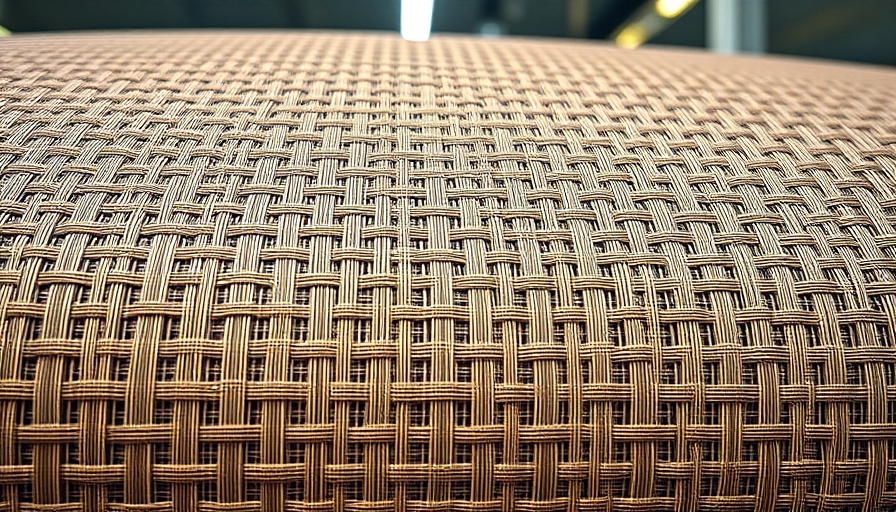
BMW Takes a Revolutionary Step Towards Sustainability
In a groundbreaking move, BMW is set to replace the carbon fiber typically used in their vehicles with a new alternative made from flax-based composites. This shift marks a significant commitment to sustainability and reflects the growing trend among automakers to adopt greener technologies.
The Partnership with Bcomp
BMW's collaboration with Bcomp, a clean technology company, has been instrumental in this transition. Since 2019, the teams have been integrating flax-based materials into BMW's racing programs. These initiatives have not only proven the material's performance capabilities but have also demonstrated a reduction in overall emissions compared to traditional carbon fiber. In fact, the new flax-composite material significantly outshines its predecessor, reducing CO2e emissions by approximately 40% when used in components such as roof panels.
Understanding Flax-Based Composites
Flax-based composites offer an attractive alternative to carbon fiber due to their natural properties. Flax fibers are lightweight and robust, making them suitable for automotive applications. Moreover, they undoubtedly help in minimizing environmental impact throughout their lifecycle, providing advantages at both the production and end-of-life stages.
Regulatory Compliance and the Future of Automotive Materials
With increased scrutiny on carbon materials due to environmental regulations, BMW's adoption of flax-based composites positions them advantageously in the marketplace. The new material meets regulatory requirements for roof structures, which is a critical factor for vehicle homologation and safety standards. This proactive approach not only aligns with ongoing European Union proposals to classify carbon fiber as a hazardous material but also reflects BMW's commitment to sustainable innovation.
Performance Insights: The Racing Success
While definitive comparisons between flax-based composites and carbon fiber in consumer models are still to come, the race track serves as a proving ground. The recent victory of BMW's M4 GT4 EVO in the SP10 class at the 24 Hours of Nürburgring showcases the flax composite's high performance. This win not only builds confidence in the material's capabilities but highlights BMW's dual commitment to performance and sustainability.
Industry Trends: The Shift Towards Sustainability
The automotive industry is witnessing a paradigmatic shift toward sustainable practices. More manufacturers are exploring natural alternatives, such as hemp and flax, to reduce dependence on synthetic materials. As consumer awareness of climate change grows, brands prioritizing sustainability are likely to capture more market share, making innovations like BMW's flax-based composites critical to remaining competitive in the future.
The Broader Implications for Consumers
For consumers, this transition means access to vehicles that not only provide the performance and luxury expected from brands like BMW but also reflect a commitment to environmental responsibility. Awareness of the materials used in car manufacturing may increasingly influence purchasing decisions, pushing buyers toward companies that prioritize sustainable practices.
Your Role in Supporting Sustainable Innovations
As potential buyers and advocates, consumers can play an essential role in driving the market toward more sustainable practices by supporting companies that innovate responsibly. Engaging with manufacturers committed to greener technologies ensures that consumer demand aligns with environmental sustainability goals.
Conclusion: A Bright Future Ahead for BMW and Sustainable Driving
The shift from carbon fiber to a flax-based alternative represents just the beginning of a transformative era within the automotive sector. As BMW leads the way in sustainable innovation, it inspires both consumers and competitors to rethink material choices in vehicle design.
 Add Row
Add Row  Add
Add 




 Add Row
Add Row  Add
Add 

Write A Comment